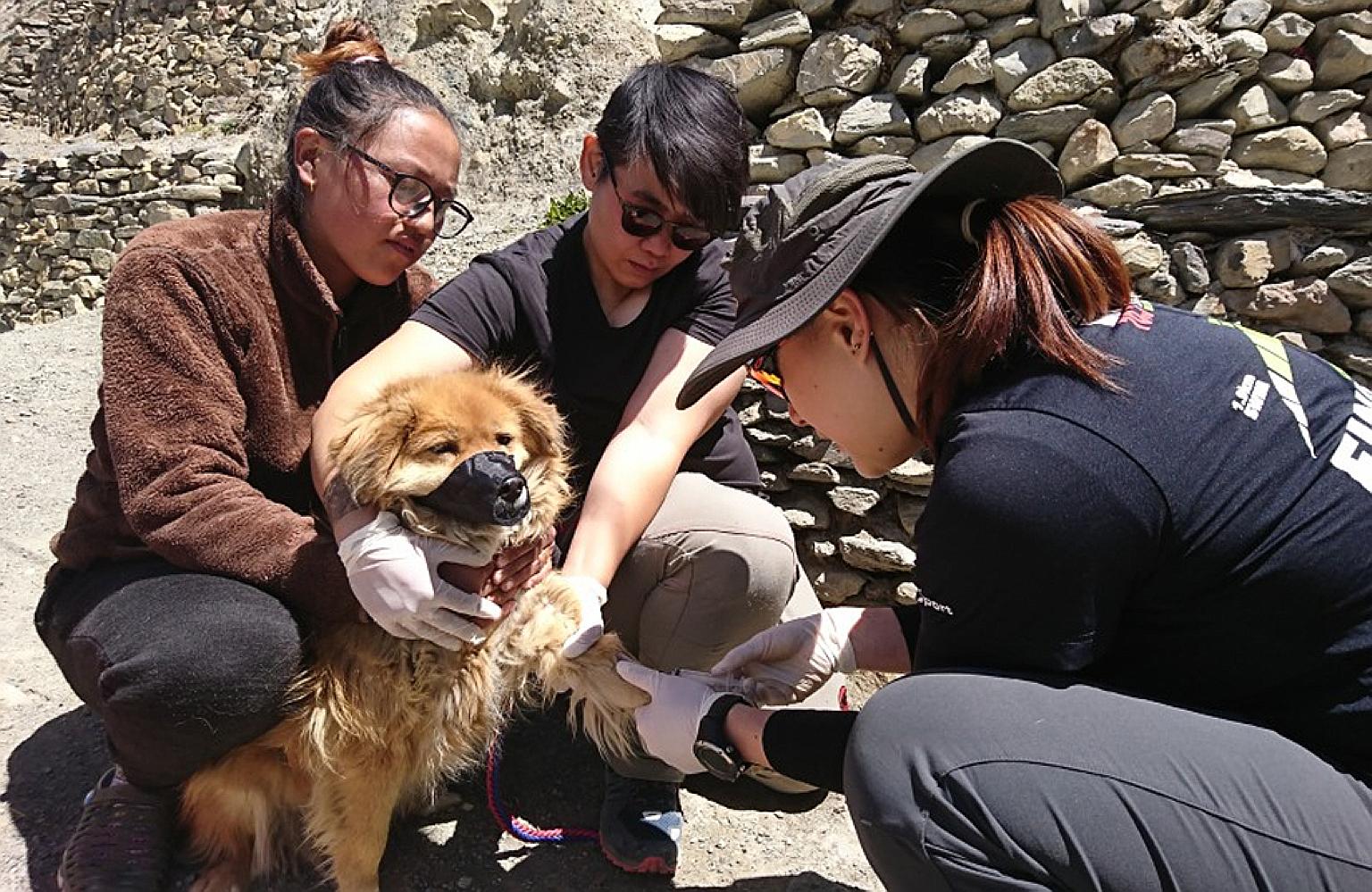WOMEN ON A MISSION
Wildlife disease ecologist vaccinates dogs, educates communities in Nepal
To mark the International Day of Women and Girls in Science, which was celebrated last Thursday, Shabana Begum and Cheryl Tan spoke to three women who have excelled in jobs dominated by men and who hope to inspire others to do the same.
Sign up now: Get ST's newsletters delivered to your inbox

Research assistants from the Himalayan Mutt Project - started by wildlife disease ecologist Debby Ng - collecting blood from a villager's dog for a study looking at dog-borne pathogens in Nepal's Annapurna Conservation Area.
PHOTO: DEBBY NG
Doing field work in remote areas may seem like a daunting prospect for a woman scientist, but not if you familiarise yourself with the lay of the land and ensure that you have a strong team supporting you, says wildlife disease ecologist Debby Ng.
The 38-year-old started the Himalayan Mutt Project in Nepal in 2014, with the involvement of local villagers.
The aim of the project was to vaccinate and neuter the free-roaming domestic dogs in the country that were attacking endangered animals, like the red panda, and threatening humans with diseases, such as rabies.
Ms Ng led teams consisting mainly of veterinarians and vet technicians to villages in the Annapurna Conservation Area to sterilise and vaccinate the dogs.
The teams also conducted programmes to educate the local community on how to spot sick animals and recognise the symptoms of rabies, as well as on the importance of sterilising or vaccinating their dogs.
To date, a total of 621 dogs have been neutered and vaccinated under the programme. Another 800 dogs have been vaccinated.
Ms Ng was awarded a US$10,000 (S$13,200) grant from the National Geographic Society in 2018 to research canine distemper virus in the Himalayas.
This was one of the highlights of Ms Ng's research work, which for a decade has brought her across the globe - from Tanzania to China and South-east Asia - in support of projects involving wildlife protection efforts.
Ms Ng takes a practical approach to travelling alone as a woman. She puts in a great deal of effort to familiarise herself with the places she visits, and ensures that she selects a resilient and supportive research team.
Having previously worked in Nepal for seven years prior to launching the Himalayan Mutt Project, Ms Ng was able to familiarise herself with the landscape and learn the country's social and cultural norms. This has both aided and guided her interactions with the local communities.
Her experience has also helped mitigate potential dangers arising from miscommunication, she said.
Ms Ng started working as a photojournalist in Nepal in 2007 and has covered projects ranging from bird conservation to female education and human cataract surgery.
She also led a photojournalism workshop for two years teaching disadvantaged women skills in writing and photography.
"It is also important to choose teammates who are sensible to the needs of women, such as by having safe and private accommodation. Activities like going to the bathroom can be challenging, especially when you're out doing field work for extended periods of time in potentially hostile environments.
"Because the work carries inherent risks, teammates must feel safe together, and be excellent communicators," she said.
When Ms Ng was investigating the illegal wildlife trade in South-east Asia, she had to traverse several remote areas to uncover the criminal networks involved.
"As a front-line researcher, it was important for my team to know exactly where I was at all times. If they saw clear signs of danger, they would have to get me out of the situation.
"We had inordinate trust in each other. The team needed not only technical skills to get the job done, but also people skills to overcome adversity and support each other in challenging and unpredictable environments," she said.
As a leader herself, Ms Ng ensures that she too creates a safe and inclusive environment for her team when leading research expeditions.
She hopes to see more female scientists doing field work - a traditionally male-dominated field.
Cheryl Tan


